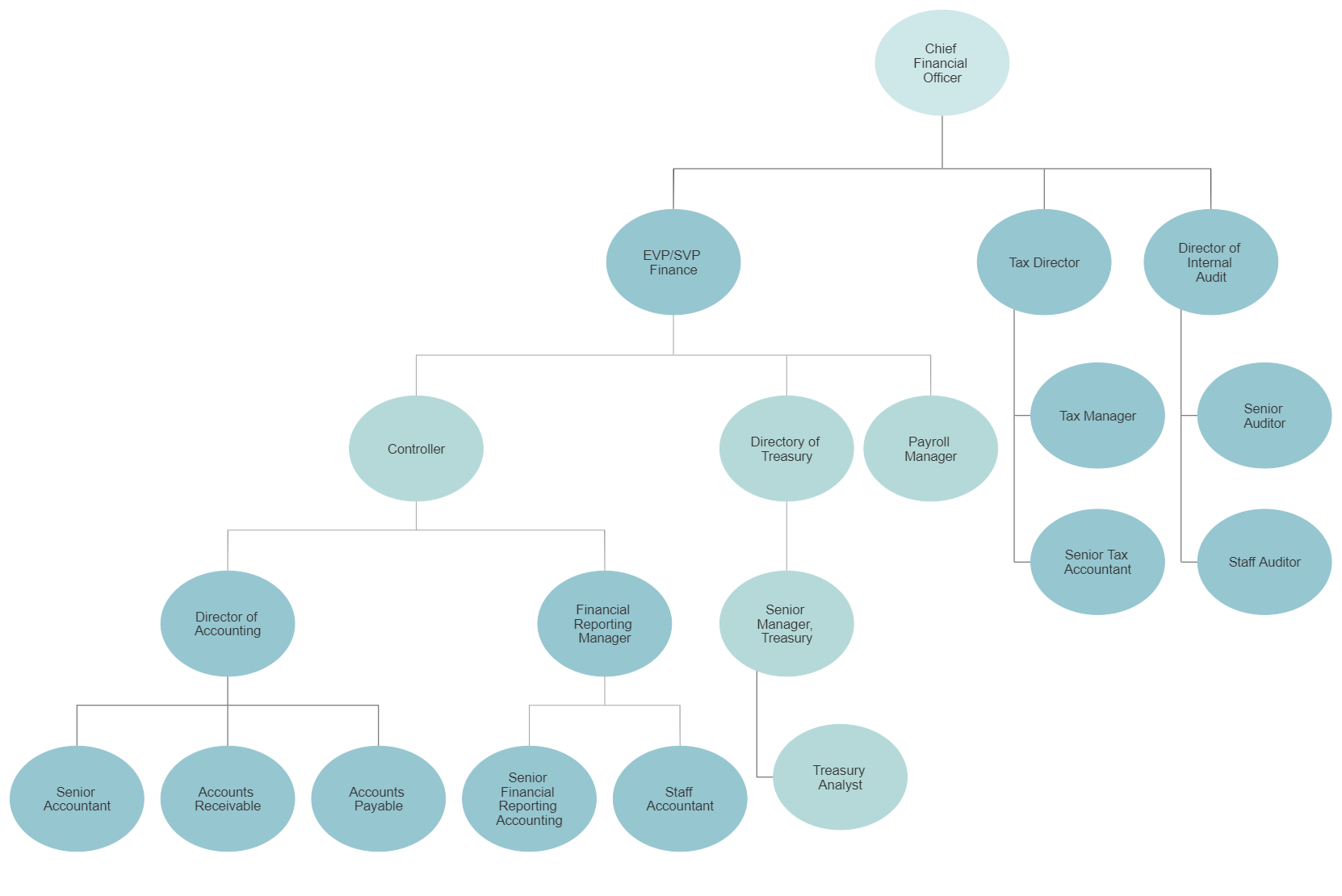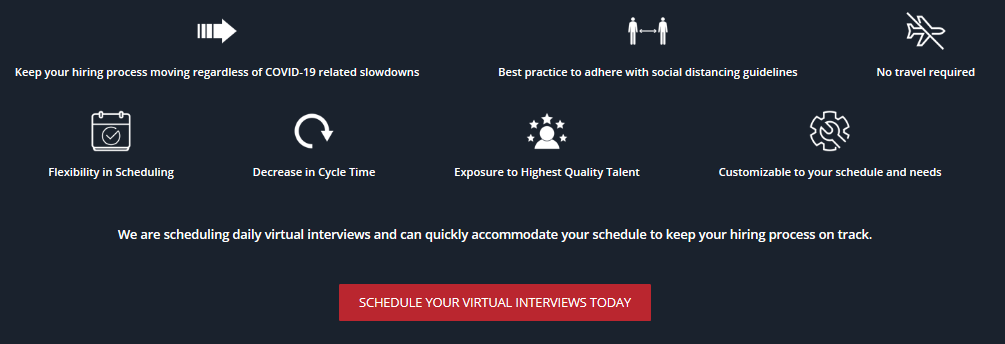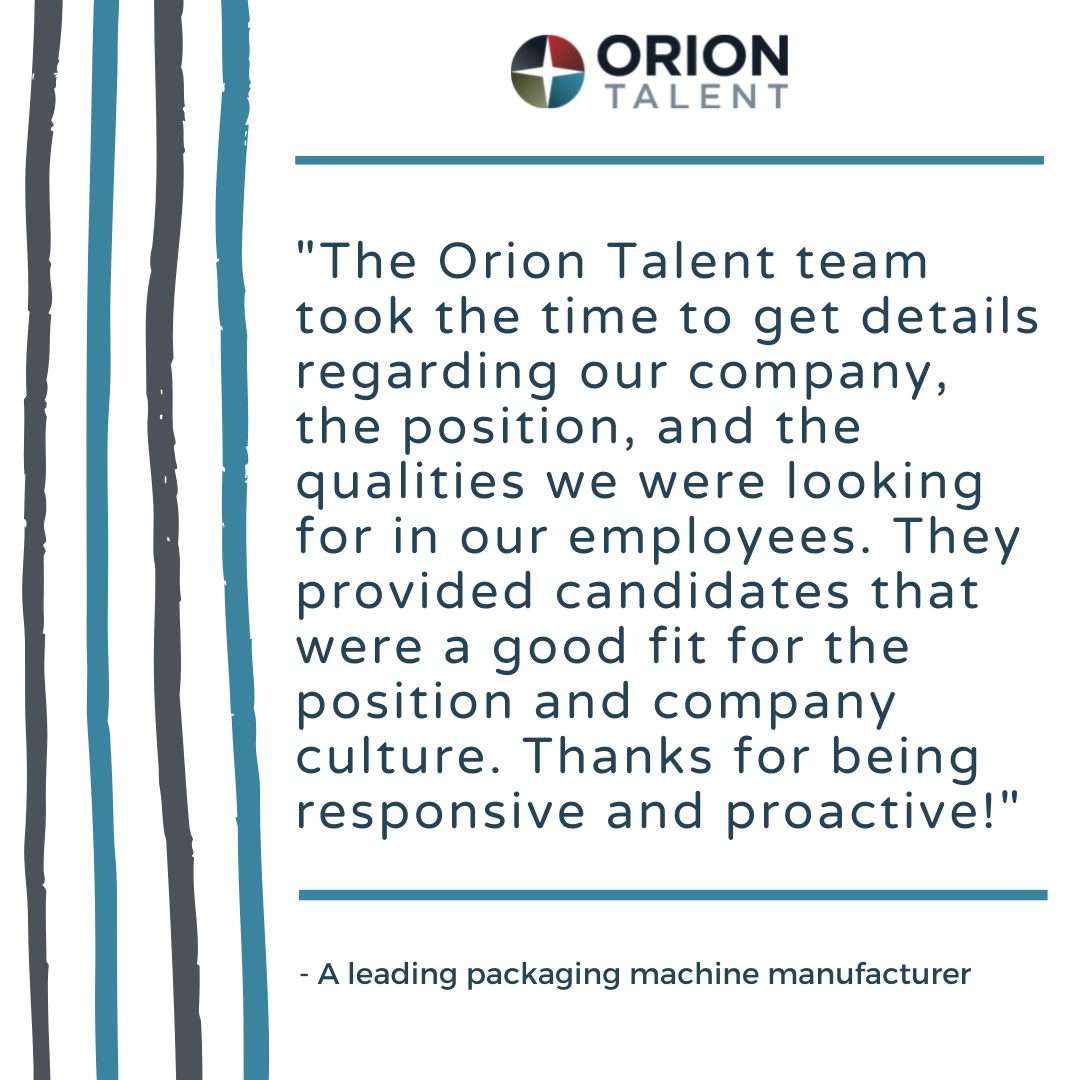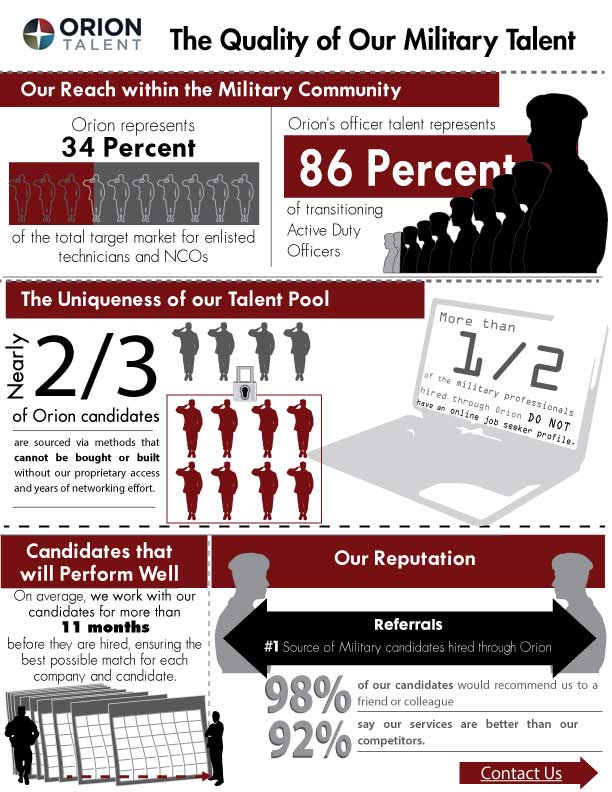Talent Insider
Wednesday, December 1, 2021
In This Issue
The Seven Steps of the Recruitment Process
Avoid These Mistakes When Recruiting Cybersecurity Talent
How to Structure Your Finance Department
On-Demand Virtual Hiring Events Through Orion Talent
Join our LinkedIn Group - Talent Insider with Orion Talent
The Seven Steps of the Recruitment Process
Finding the most qualified candidate for a position can be a long, intricate process, where recruiters sift through hundreds of resumes looking for just the right mix of technical and soft skills to match a specific role. But, when approached methodically, the process of recruiting can run smoothly and quickly. In this blog, we will look at the different stages of the recruitment process and how you can tackle each step with the precision needed to find the right employee.
How does Recruiting work?
The recruitment process begins well before an interview and should extend beyond an offer. Businesses need a well-thought-out strategy, because recruiting top-notch talent doesn’t just happen. You need to be able to move from identifying future talent gaps to having a stable of talent ready to deploy. With this in mind, we have outlined seven steps talent acquisition professionals should follow to ensure their recruiting process flows smoothly.
The 7 Steps of Recruiting
- Forecast mission-critical talent needs. Research your most important recruiting needs, quantify them, and identify the types of candidates and experience necessary for those roles.
- Analyze current workforce and talent supply. Research how your current talent strategies align with your overall business strategy.
- Develop, implement and evaluate strategies to close talent gaps. Conduct a demand analysis to look for gaps in your system and implement any of the best strategies you can find to streamline the process.
- Update recruitment technology. You need to leverage a highly customized technology platform in addition to industry-leading technology to make the most of your talent pool
- Source and recruit talent. This should always be the focus of your recruitment strategy. The need for great talent doesn’t go away, so it is important to focus on how talent can integrate with your business.
- Manage talent. Similar to workforce planning, this involves helping your best employees grow to their highest potential.
- Analyze and fine-tune. Look back at the first six steps, analyze your talent metrics, and consider recruitment process outsourcing.
Recruitment Process Flowchart

Why Businesses Outsource their Recruitment Process
Outsourced recruiting is when a company uses an outside firm to manage the various steps of its recruiting process. This is also known as Recruitment Process Outsourcing (RPO). It is an overall business strategy that integrates well with any stage of the recruiting process and has a goal of boosting hiring performance. Highly scalable, an outsourced recruiting team can engage in your recruiting process from end-to-end or on a project basis.
Many companies leverage RPO because all their many hiring costs are rolled into a single cost, so they know what expenses are coming down the pipeline every month. Others enjoy the long-term, strategic partnership that ensures built-in accountability and a consistent talent pipeline.
No matter what step you are on, Orion’s Recruitment Process Outsourcing solutions can help you create a robust and effective recruiting process that attracts the best talent. You can learn more about Orion’s services here or download our free e-book “What to Know Before You RPO” here.
Learn More About RPO:
- 4 Reasons For RPO: What is it & What Does RPO Mean?
- RPO VS Staffing - What's The Difference Between RPO and Staffing?
- How Does Talent Acquisiton RPO Work?
- Why Do Companies Outsource Recruitment?
- Try Our RPO Questionnaire
- Improve Your Time-to-Fill with RPO
- What's the ROI of RPO
- How does Manufacturing RPO Work?
- The Six Impact Areas of Recruiting Process Outsourcing
Avoid These Mistakes When Recruiting Cybersecurity Talent
According to this article by Danny Palmer in ZDNet, CTOs are experiencing a skills shortage when looking for cybersecurity talent. And this shortage is made even more painful when compounded by the security challenges of remote work and burnout for existing employees.
Five Mistakes to Avoid
Companies are left exposed to the next ransomware attack with so many information security jobs left unfilled, yet they are continuing to make basic mistakes when seeking new talent to recruit. Palmer writes that these mistakes include:
- Not offering competitive compensation;
- Not understanding the skills needed for cybersecurity;
- Creating unrealistic job postings;
- Not investing in continued training of employees;
- Viewing cybersecurity as a technology issue rather than a business issue.
In order to attract the right candidate you not only have to make it worth their while, but you have to use the language they speak, offer investment in their continued success, and, ultimately view their job function as vital to your entire business.
Overcome the Cybersecurity Talent Shortage
If you are struggling with any of these obstacles, the Technical Recruiting experts at Orion Talent can help. We offer proven search solutions for Cyber Security and Information Security positions like Security Specialist, Senior Security Specialist, Security Engineer, Threat Response Analyst, Data Security Analyst, and SOC Technicians, among many others.
Looking for more Computer, Software, and High Tech resources? Check out the information below.
How to Structure Your Finance Department
For many business leaders, deciding how to start, grow, or scale a Finance department may be a mystery. They may wonder what size and shape it needs to take, especially in respect to the life stage of their business. In order to ensure both daily operations are maintained and long-term goals achieved, defining a finance organization structure is crucial.
According to Jennifer Martinez, Director of Finance Recruiting at Orion Talent, "It’s important to understand short and long-term needs when building a finance team so that you can identify, assess, and retain the right talent. What phase is the company in? What skills are needed in the department immediately, and to support longer-term initiatives? What about company culture? How have technical and behavioral skills been evaluated, and have these methods been effective?"
How are most Finance Departments Structured?
A Finance department manages a business’s monetary operations and strategy, both long-term and on a daily basis. It is led by the Chief Financial Officer (CFO), EVP/SVP of Finance, or Director of Finance, and often includes the following sub-departments:
Accounts Payable (AP): Ensures all company vendors are paid in full and on time
Accounts Receivable (AR): Collects payments from customers or clients
Accounting & Reporting: Maintains a company's books; prepares all financial statements, reports to U.S. Securities and Exchange Commission
Budgeting & Forecasting: Produces and assesses a company's budget by calculating the variance between planned and actual costs; provides strategic guidance to the business by advising on the financial impact of operational decisions
Expense Management: Responsible for monitoring and auditing all employee-initiated expenses
Internal Audit & Compliance: Oversees a business' financial operations to ensure that they are in line with internal and external policies and regulations
Tax: Manages all tax-related expenses
Treasury Management: Manages all of the company's assets to maximize liquidity and reduce risk
Payroll: Administers and documents all salaries, wages, bonuses, and deductions received by employees
How should corporate and startup companies differ in their approach?
Different companies in different stages often approach creating or growing their finance department in different ways. Are they a corporate giant or a start-up business?
Often, for more established companies, Finance roles are more clearly defined in terms of job descriptions and organizational instructions. For more senior roles, they may look to internal hiring for the experience that person may have gained through various finance roles within the company.
At a startup, however, some employees may work outside of their main positions and they may hire external finance experts along the way. At this life stage, a finance department usually consists of two or three levels.
What roles can be outsourced?
While it was often unheard of to outsource Finance roles due to security risks and potential data loss, there are a few roles that are commonly outsourced today due to advances in Information Security. These include:
- Bookkeeping
- Payroll Processing
- Accounts Payable Specialist
- Accounts Receivable Specialist
- Financial Administration
- Taxes
What roles need to be in-house?
Any roles not listed above are best kept in-house for a variety of reasons. No company wants to lose sensitive data, confidentiality, or management control. They can also avoid unexpected costs and the need for quality control of an outside vendor.
Grow Your Finance and Accounting Department
As you can see, ensuring that you have the ideal finance department structure is important. You need to answer the questions posed above to help determine what sub-departments and positions make the most sense, and whether to outsource any or keep them all in-house.
No matter where you are in developing a finance department structure, Orion Talent is here to help. If you need to hire industry-experienced talent for Finance and Accounting roles, visit us online to learn more.
First time considering finance recruiting? Learn about How to Work with a Finance Recruitment Agency to attract top talent.
On-Demand Virtual Hiring Events Through Orion Talent

- How many candidates would you like to hire?
- When would you like to virtually interview Orion's candidates?
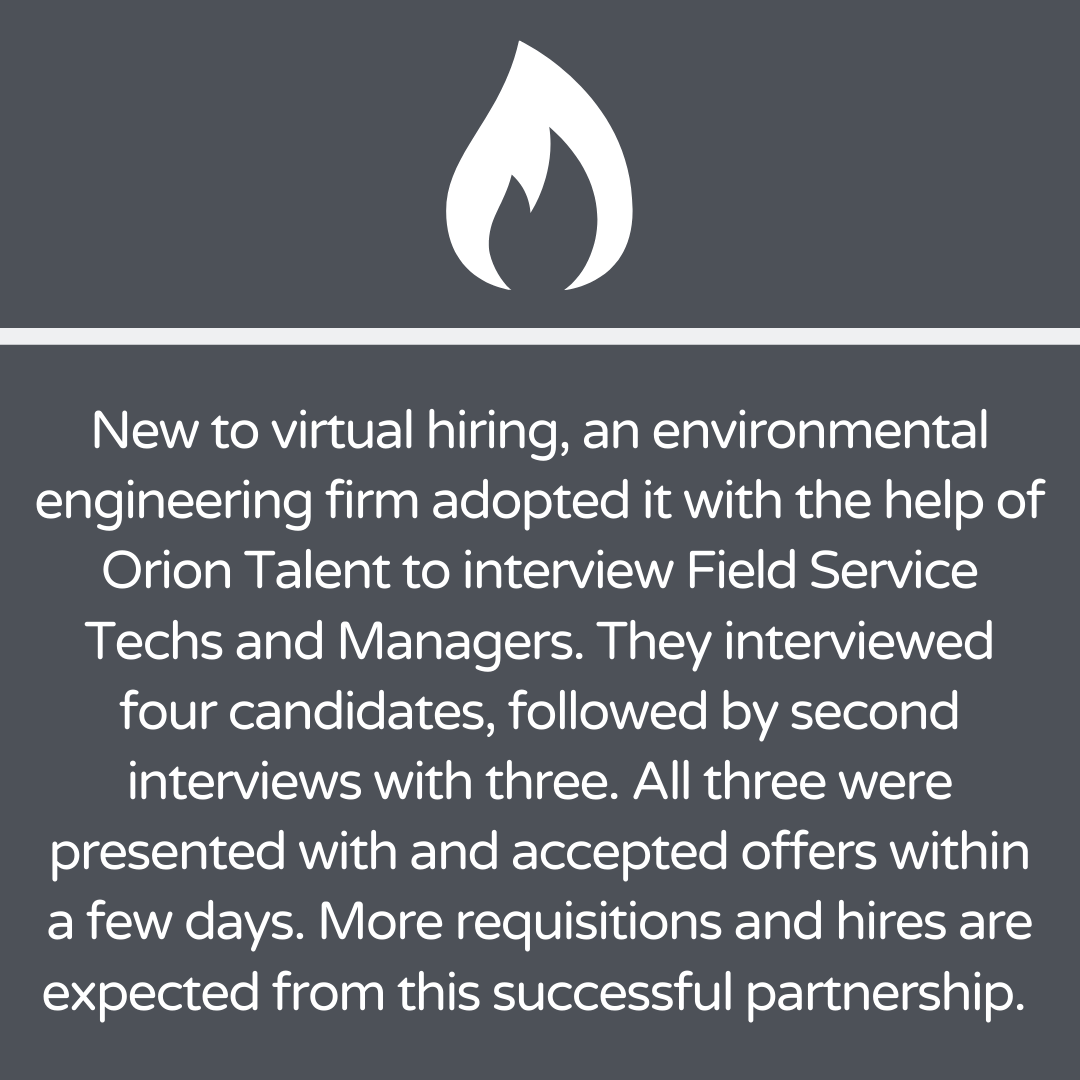
Military Hiring Conferences
Interview Junior Military Officers, Noncommissioned Officers and Enlisted Technicians Recruited for your Hiring Needs
An Orion Hiring Conference is your chance to interview the best military job seekers, selected specifically for your open positions. You will be presented with pre-screened, qualified and suitably matched veterans that are interested in your available opportunities. Click on the dates below to learn more about our upcoming hiring conferences.
Virtual
Click here for more information.
Click here for more information.
Join our LinkedIn Group - Talent Insider with Orion Talent
Have you joined our LinkedIn group, Talent Insider with Orion Talent? Talent Insider with Orion Talent is a group for all hiring managers, employers, and talent acquisition professionals interested in learning more about how to hire top talent. We are proud to offer access to employer resources, including thought leadership, hiring event notifications, podcasts, blog posts, news, other insights and advice, and more!
We also encourage you to share your expert insight, as well! Whether it be through RPO, Search, Military, Attraction & Sourcing, or Total Talent Solutions, this group will help you achieve the talent outcomes your business needs.
According to our Clients
Refer a Military Job Seeker or Client Company to Orion
If you would like the chance to win a $50 gift card, enter into our monthly drawings for Client referrals and Job Seeker referrals. If your referral results in a hire, you will personally receive a $100 gift card as our way of saying thank you. As always, we will maintain your privacy and never share your information nor that of your referral. That's one entry for each referral that you submit - good luck and thank you for the referral!
Lee Alan Harrison won the Job Seeker Referral monthly drawing
and is the winner of a $50 gift card.
Connect with Orion
Follow us to keep up-to-date on all things Orion through our social media listed below.

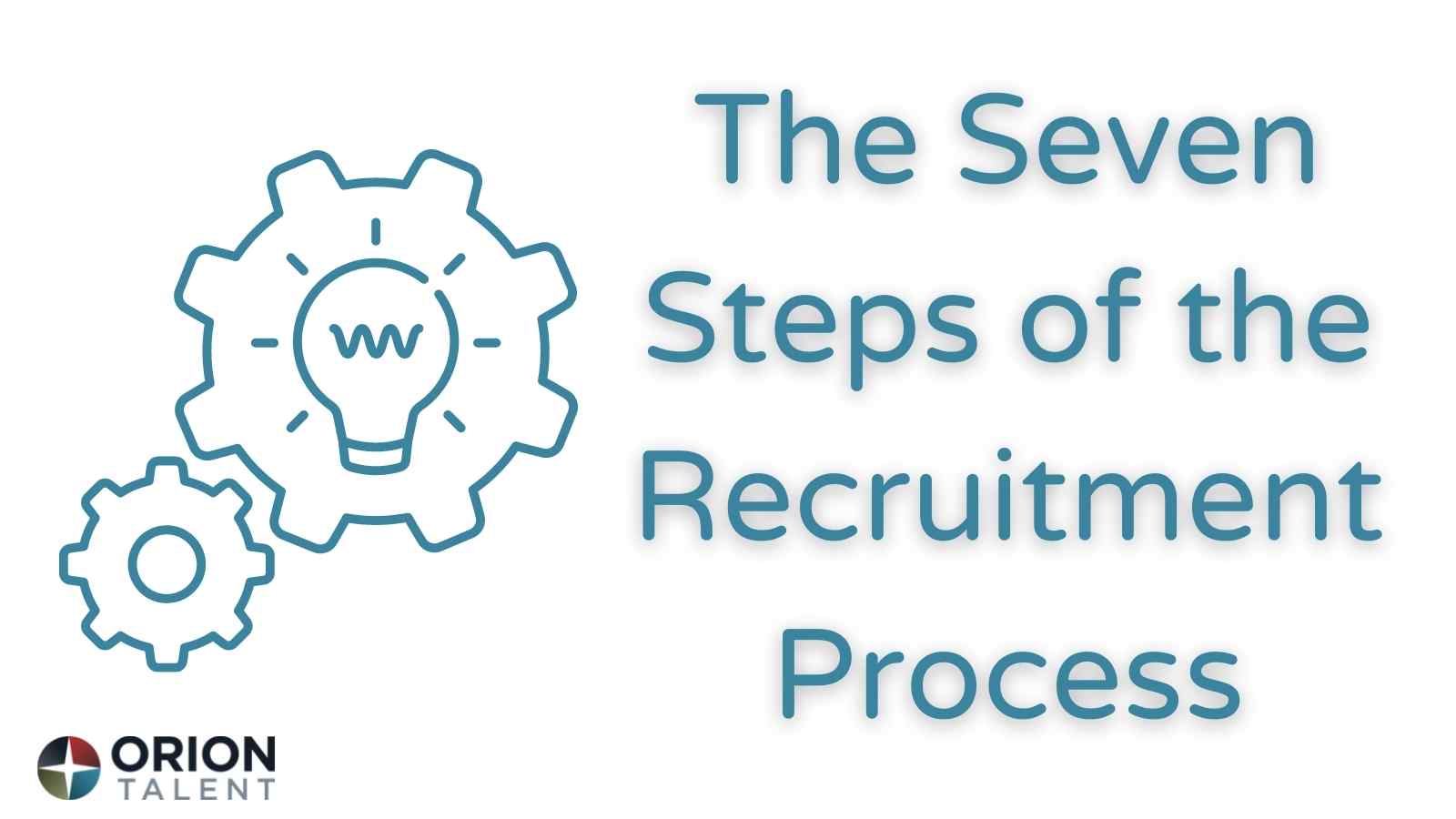
.jpg)

